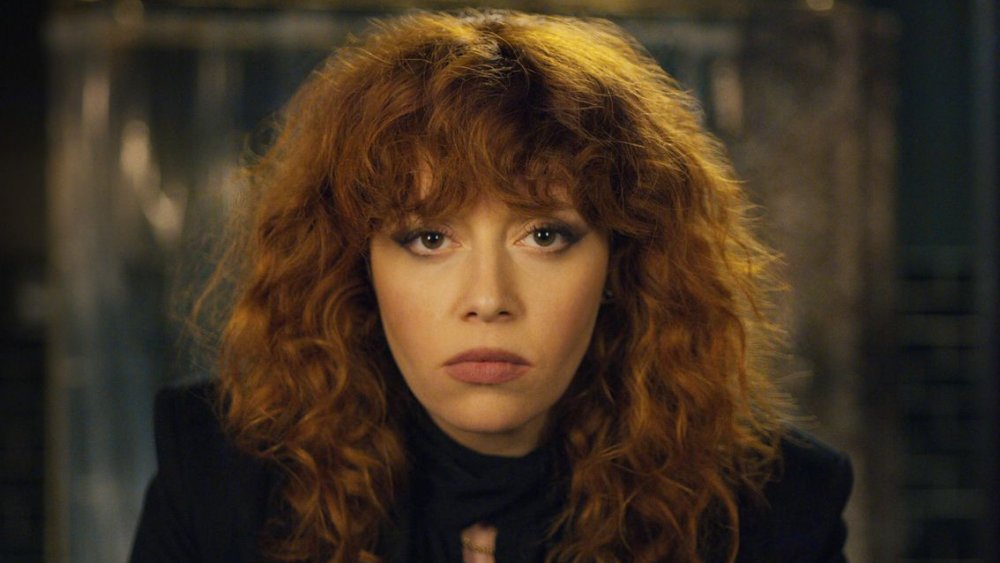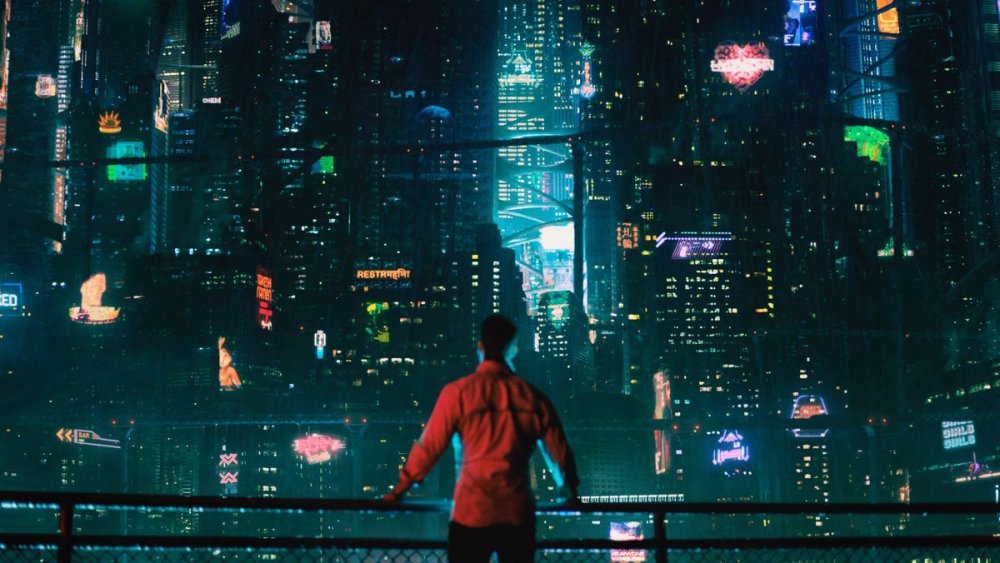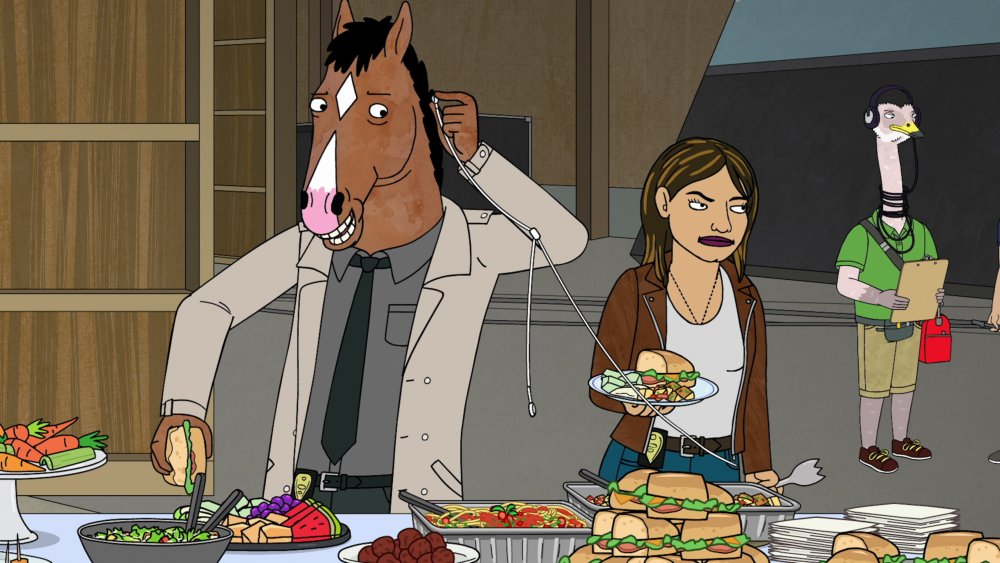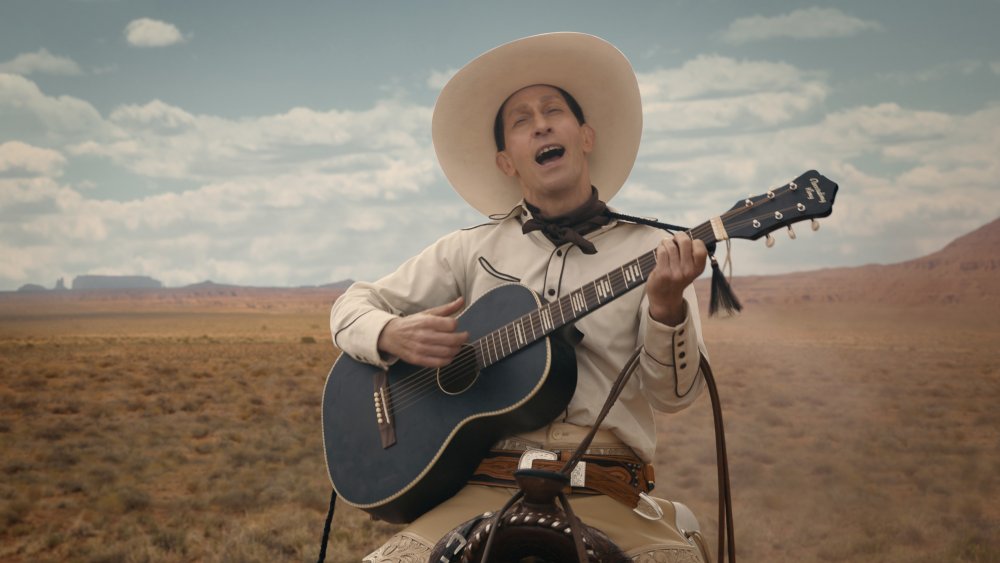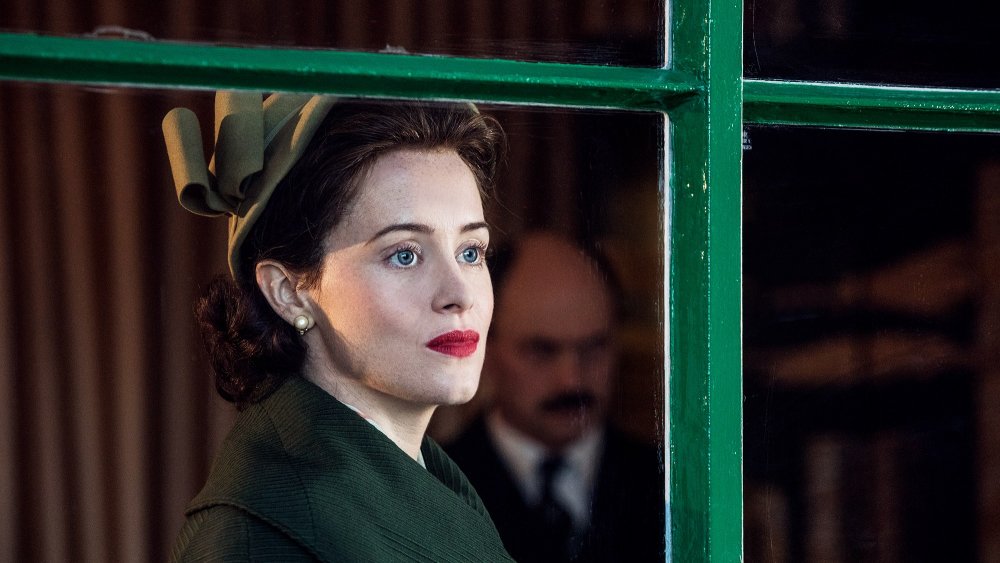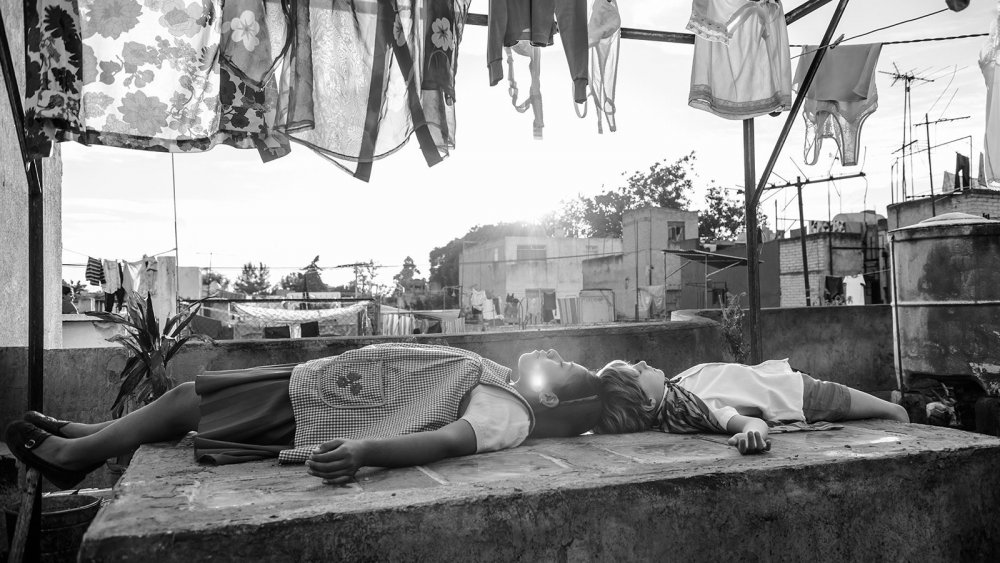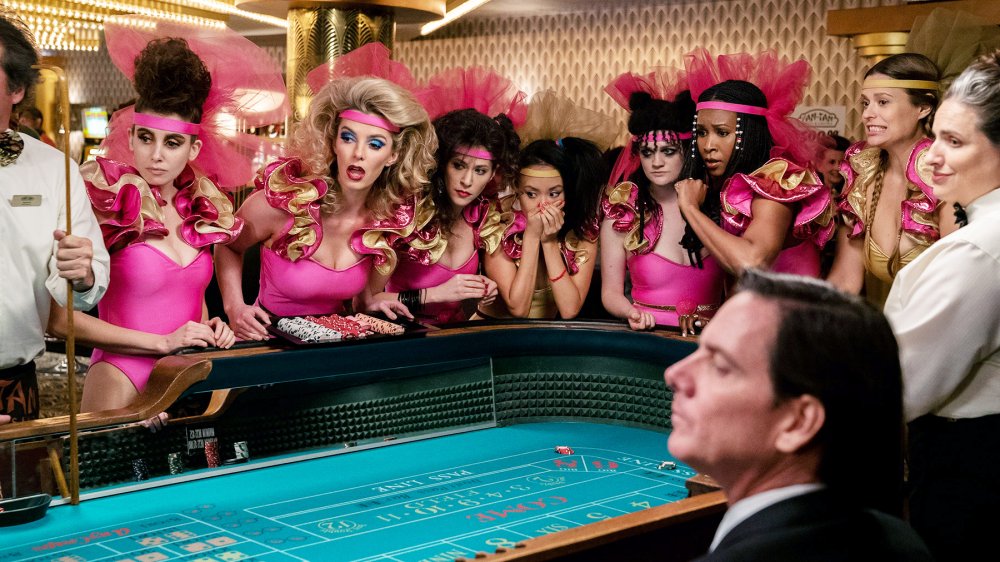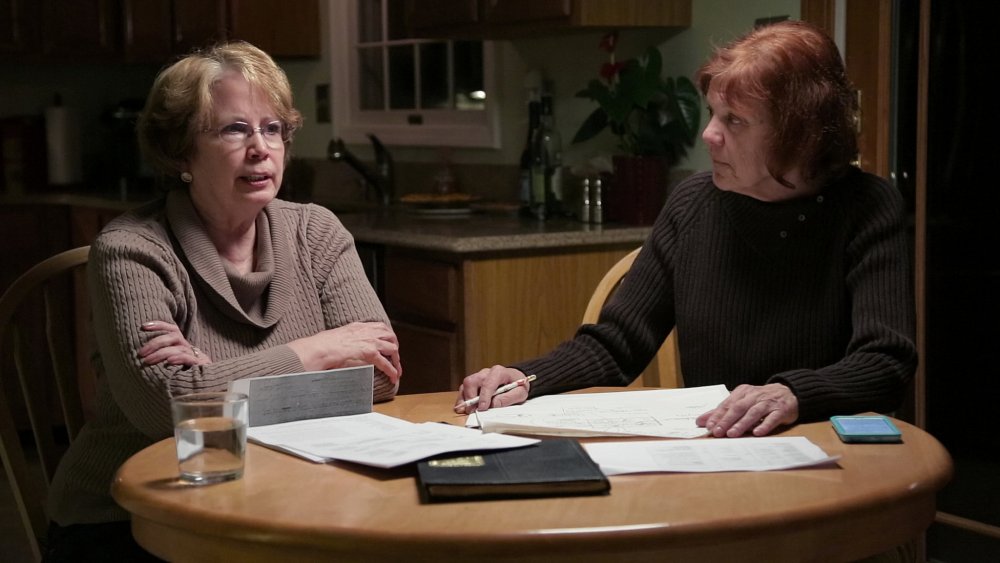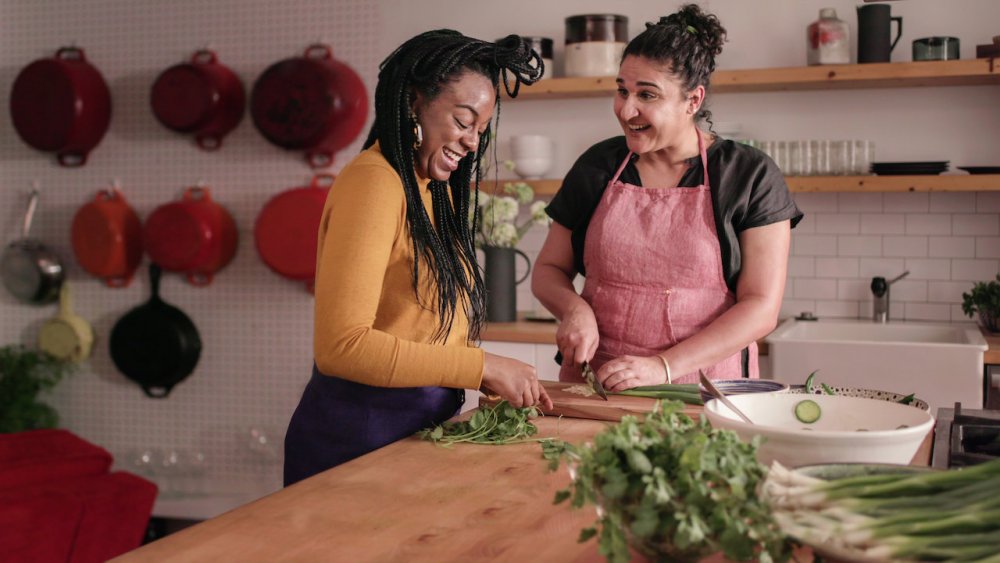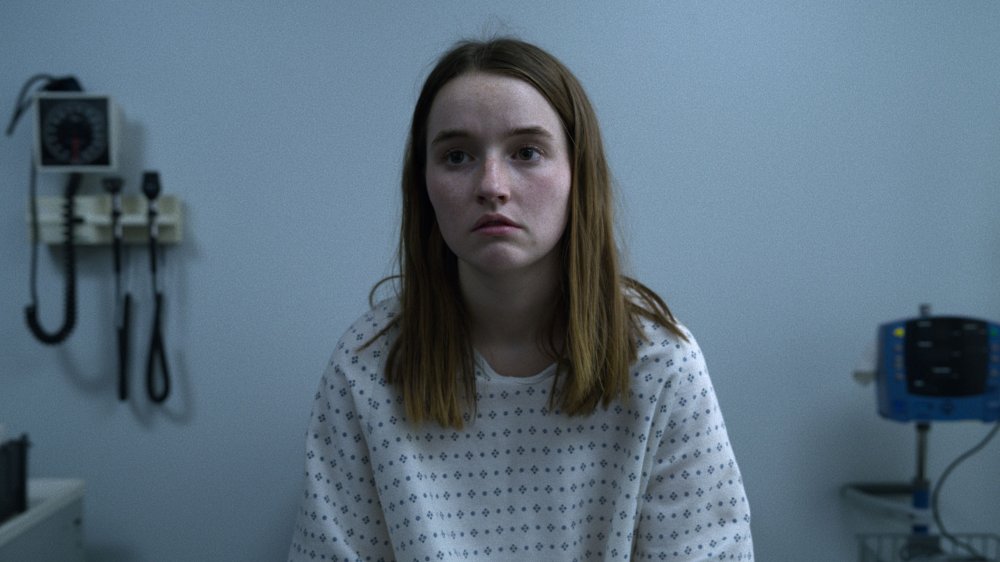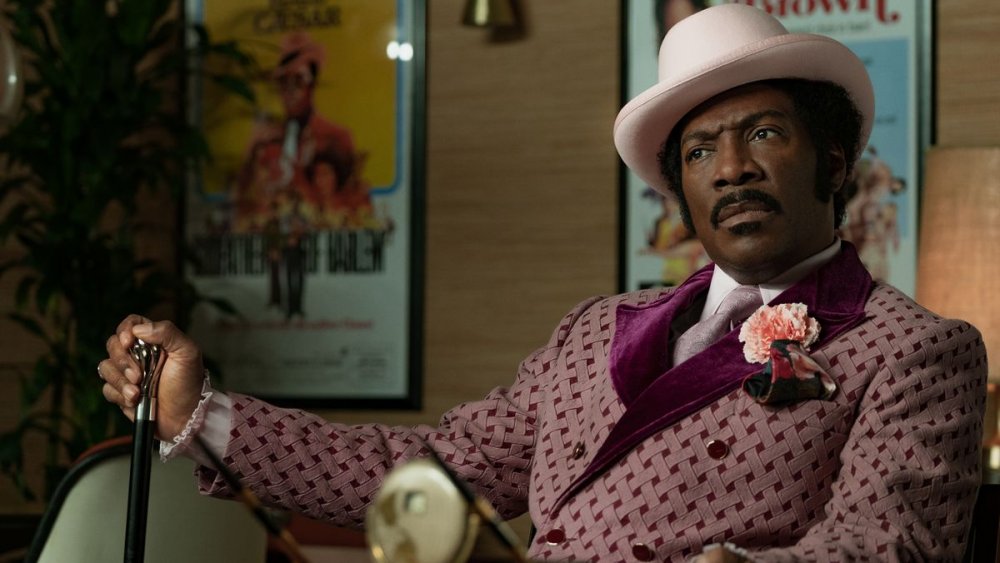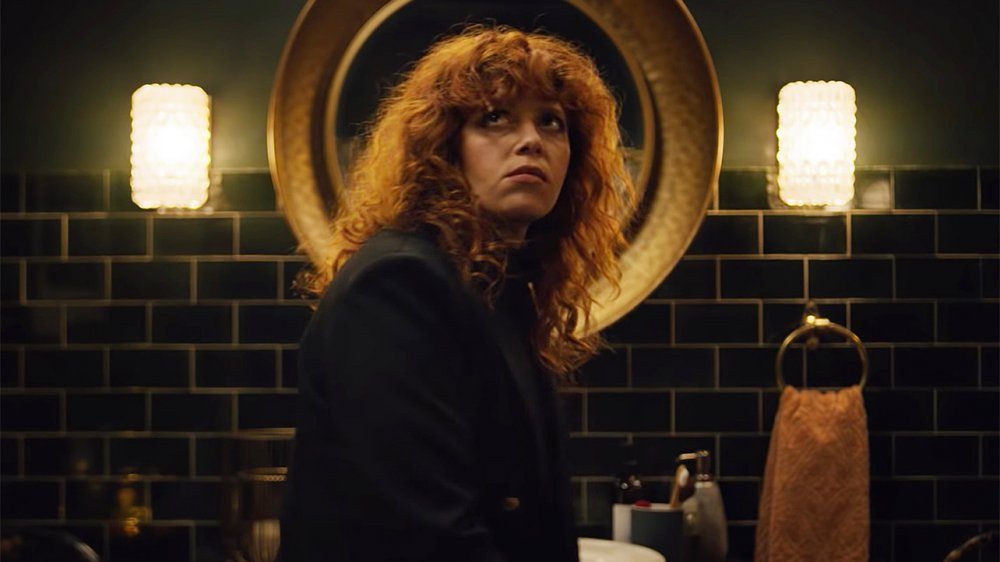The Best Netflix Originals Of The Last Decade
The entertainment landscape has shifted so dramatically over the course of the 2010s that the decade's origin and endpoint practically can't be compared. The year 2009 was an era largely in line with all that came before: TV on TVs, movies bought as physical items, digital access to entertainment a perk and not a particularly expected one. However, 2019 has seen streaming burst into bigger, brighter prominence than ever before with the debut of services like Disney+, award shows increasingly devoted to streaming-first shows like The Handmaid's Tale, and slang terms like "binge-watching" increasingly becoming something one's grandparents understand.
Netflix is the ruler of this brave new world of entertainment, and its original programming sits atop its ever-more-gleaming throne. From directors like the Coen brothers to actors like Toni Collette, the industry's top talents are going to Netflix first — and they don't seem likely to stop. In that spirit, we're here to celebrate the best Netflix originals of the last decade, both movies, TV shows, and miniseries. Here's to another ten years of true crime triumphs, sci-fi success stories, and all the cooking shows we can stomach.
Altered Carbon is Netflix at its sci-fi best
Cyberpunk stories have always been fascinated with death — specifically, death as an optional experience. In a world where information can be immaterial, why not the mind? And if so, why be restrained to only one body, one reality, one puny lifetime? Altered Carbon (one of Netflix's most expensive shows) takes these concepts to their logical endpoint: A world where one's self can be kept in, essentially, external hard drives, and switched between bodies for centuries ... for the right price. Technology might've blown the concept of "lifetime" wide open, but that doesn't mean everyone gets to become a virtually immortal "Methuselah," in the parlance of the show.
Many similarly aimed projects stop at this point, content to marvel at the strangeness of such a world. Altered Carbon, in centering the experiences of Takeshi Kovacs, a mercenary shoved into a new body (or "sleeve" as this world refers to them), takes the premise further. Takeshi, put into stasis centuries earlier, lives on the knife's edge of Altered Carbon's world, balanced between a life that no longer exists and one that does, but only so long as his wealthy employer allows. The point of the show emerges from this moral morass, scalpel-sharp: How do we determine what lives matter? Altered Carbon doesn't have the answers, exactly, but it doesn't want to. It simply asks the questions our technologically abstracted world demands, even if the answers terrify.
Bojack Horseman is one of the greatest TV shows of the decade
Bojack Horseman is an animated series in which anthropomorphic cats drop Portnoy's Complaint puns, dogs keep framed photos of family members' behinds, and Hollywood luminaries accept awards for films entitled The Nazi Who Played Yahtzee. It's also a searingly honest account of one man's struggle to accept that he's hurt people in ways that can never be undone. The tension between these two halves of the show would be untenable for a lesser production, but tension is where Bojack Horseman lives. Sometimes men date axolotls. Sometimes a long-lost half-sister has eight dads in a closed polyamorous marriage. And sometimes, a has-been horse realizes that he's tired of being a bad person, but he doesn't know how to change.
Bojack has worked hard to overcome his alcoholism, accept his mistakes, and make better decisions, but the show has made it clear that there's no moment when one achieves a perfect state of goodness. Bojack will need to keep making those choices, keep facing his demons, and keep accepting the ramifications of what he's done. Will he be able to? No one knows, but one thing is clear. In embracing the complexities of a life lived in the spotlight, Bojack Horseman is a modern masterpiece.
The Ballad of Buster Scruggs is the Coen brothers at the top of their game
The anthology series is well and truly back at the forefront of entertainment. Black Mirror, American Horror Story, The Romanoffs, and The Terror haven't just proved that the unique format works across genre, but that it can be used to tell uniquely vibrant stories, unconstrained by continuity — a rarity in our fandom-heavy, wiki-supported, nitpick-loving era. Tracking the Targaryen dynasty is fun, but occasionally, a person just wants to enjoy variations on a theme.
The Coen brothers didn't just bring the anthology back into the world of feature films with the joyous Ballad of Buster Scruggs. Instead, they shot it full of lightning and let it loose across the American West. Comprising six stories united by classic Hollywood Western themes, Scruggs chronicles everything from the brutal world of traveling stage shows to stagecoach conversations about life. As with every Coen brothers movie, it's a little sad, a little bit sweet, a whole lot odd, and ultimately, far greater than the sum of its parts. In using the anthology format, the film zeroes in on the bizarre extremities of frontier life (and our historical fascination with it), constructing an edifice of black humor as crooked and charming as its characters' smiles. There are no easy laughs in Buster Scruggs, nor any simplistic tragedies, and that's what makes it the perfectly, horribly delightful film that it is.
The Crown is a brilliant portrait of the royal family
Can there possibly be more to say about the British royal family? One could be forgiven for thinking not, as even the most cursory glance at a supermarket check-out line probably reveals breaking Princess Diana news, more than two decades after her death. And yet, in taking a microscope to a group of people that most feel like they know entirely too well, The Crown finds new territory, and astonishingly, it makes their stories feel more vital than ever.
The show's approach is key. In following Queen Elizabeth II's reign from its earliest days to, as is reportedly The Crown's goal, the modern day, it finds a bevy of intrigue. Key to the show's success is the cast, most visibly Claire Foy as the queen of the first two seasons. She grows, over the course of her time in the role, a patina of iciness so perfect, even the audience forgets it's there. Only upon revisiting the earliest episodes does one realize how much slow, careful work Foy did in building it. Olivia Colman had her work cut out for her, but of course, she's equal to it. Witness the single, perfect tear she forms and sheds, in tight close-up, at the end of the third season's "Aberfan." It's a show about power's demands and rewards, unfolding with a richness that never stops surprising. Which, given the fact that everyone knows how the story goes, is praise of the highest order.
Roma proves that Netflix can make original, powerful films
Alfonso Cuaron has traveled far and wide in his career as a director. Harry Potter and the Prisoner of Azkaban sent him to Hogwarts, Children of Men saw him explore a dystopian future, and Gravity spun into the endless void of outer space. But Roma goes to a far more personal place, one built primarily from his memories of growing up in the Colonia Roma neighborhood of Mexico City. Here, in comparatively humble environs, he explores what makes a family and what forces threaten to tear it apart.
Primarily the story of Cleo, a live-in maid to an affluent family, Roma keeps a tight focus on the events of her life, and that of the family she serves. In restricting the film's focus, Cuaron doesn't just take a magnifying glass to the tensions and upsets of 1970s Mexico City, he reveals the smallest shifts within a single family to be tectonic in their power. Cleo's anxious, accidental pregnancy, the infidelity of the family's patriarch, and the moments in which Mixtec, an indigenous language, is spoken instead of Spanish are as grand and potent as the scenes of bloody street protest. Cuaron manages a devastatingly difficult balancing act in Roma, portraying intimate acts of domestic drama as both symbols of wider problems and poignant moments in and of themselves. In so doing, he creates a film of uncommon power, grace, and soul-shaking candor.
GLOW is about way more than just wrestling
The 1980s lend themselves to lazy storytelling. All one needs to do is back-comb the actors' hair, stripe on some mauve blush, and shove in some shoulder pads, and many will call it a faithful take on the era. It takes a commitment to thoughtful storytelling to explore the decade on a deeper level, particularly when one is portraying an ensemble cast from many different walks of life. GLOW doesn't just pull that off with humor, gravitas, and utter aplomb — it makes it look positively easy.
Though Alison Brie and Betty Gilpin are undoubtedly the series' headlining stars, GLOW's strength lies in its investment in the supporting cast. Their storylines diverge wildly, development signified by everything from a last-minute performance as Liza Minnelli to a finished screenplay on an executive's desk. But GLOW understands that, as a wrestlers on a shamelessly sleazy show-turned-Vegas act, none of its characters are where they thought they'd be in life, and that this is a boon to some and a disappoint to others. Thus, their next steps are vibrant acts of self-determination, from hot-shot producing gigs to embracing a same-sex relationship. Its cast are on the edge, in every possible way, and by thinking deeply about what that means to each of them, it has created a rich tapestry of an era that was as bright and beautiful as it was devastating. As their jingle goes, the women of GLOW can't be tamed, and the show loves them for it.
The Keepers is a hard-hitting entry in the true crime genre
True crime has always been a robust genre, but the 2010s saw it rise to new heights of popularity with productions like Serial, Mindhunter, and My Favorite Murder. The Keepers might've ended up a sort of also-ran of the trend, a twisty piece of reportage on a mysterious death of the 1960s that was entertaining and quickly forgotten. But in letting the sorrow and confusion of those trapped in a web of institutional corruption take center stage, The Keepers became something deeper, braver, and altogether better.
An exploration of the murder of Sister Cathy Cesnik at a Baltimore Catholic school in 1969, The Keepers lets those who remember the bright young teacher best take the lead. But this isn't anything as simple as an elegy for a beloved community figure or a sordid recounting of crime. The Keepers goes spelunking into a vast, dark cave system of cruelty, cover-ups, and corruption. Cesnik's murder was only the most vivid expression of a school, city, and church festering with sexual abuse and dishonesty — crimes that might be decades in the past but still lay heavy upon those who survived them. In centering their voices, the series centers what makes true crime the passionately followed genre it is: The loss, rage, and burning desire for clarity that endures, long after headlines have stopped being made.
Salt, Fat, Acid, Heat is a Netflix original that makes food magical
How did Samin Nosrat manage to do something entirely new in the world of televised cooking? Her 2018 series seems, in many ways, to follow expected patterns. She travels, explores local cuisine, demonstrates making it, and discusses why it is we love the dishes we do. And yet somehow, in so doing, she creates something entirely unique and immediately beloved. The secret lies in the show's title. Nosrat breaks the world of food down into unpretentious, deeply felt steps that resonate with neophyte chefs and doyennes of haute cuisine alike.
To start, Nosrat herself is a draw. She nearly glows with passion for her art, whether she's listening to the symphony of microorganisms creating soy sauce or sprinkling cornmeal onto dough. But it's her tired-and-true demonstration of food as something beautiful, understandable, and unique that takes the most lovingly made, regionally specific olive oil down to the supermarket-bound reality of most home cooks. Nosrat doesn't see the highfalutin world of Chez Panisse as separated by an unbridgeable chasm from the person watching her series. They are instead a horizontal continuum. The viewer can goggle at the splendidly filmed locales she visits and still end up with something they can try out in their kitchen that same day. It's all, in Nosrat's world, going to come down to the same four, titular elements of cooking, and anyone, anywhere, can appreciate them.
Unbelievable is an unbelievably effective series
Terrible people will never stop fascinating us, if innumerable seasons of Law & Order are to be believed. But there is, it seems, still more to say on the topic. In eight tense, finely-crafted, sharply acted episodes, Unbelievable proves that to be undoubtedly the case.
An adaptation of the Pulitzer Prize-winning 2015 ProPublica article, "An Unbelievable Story of Rape," Unbelievable's greatest strength is deceptively simple. It focuses on the victims. One might think other crime series do this until one watches Unbelievable, and then it becomes clear that showing a handful of scenes in hospital rooms after a terrible act has been committed doesn't suffice. Unbelievable, in contrast, tells its story through these women, whose triumphs, sorrows, and compromises it showcases. They are the heroines, and they are granted the kind of complexity that shows of similar subject matter typically reserve for perpetrators. Unbelievable is a tale of maddening corruption, mendacity, and sheer laziness, the likes of which infuriated readers of the original article worldwide. But it's also a story of strength, doggedness, and fierce compassion. In allowing those qualities to take up screentime, it accomplishes something dazzlingly new in a genre as well-worn as television itself.
Dolemite Is My Name features one of Eddie Murphy's best performances in decades
Biopics are a double-edged sword. On the one hand, they provide a ready-made story just waiting for the right team to snap up and turn into cinematic gold. On the other hand, having to abide by a story already concluded can be as much of a hindrance as a help. And when one is portraying the life of another storyteller, the film can plummet into the depths of navel-gazery and self-congratulation.
Yet you'd never know these trials from watching the delightful, delirious Dolemite Is My Name, one of the most underappreciated movies of 2019. Eddie Murphy doesn't just play the legendary Rudy Ray Moore with skill, he seems to conjure the entertainer back to life. A complex entertainer with as much failure in his life as success, Moore was as loud off-screen as he was playing Dolemite, the character that made him famous. Murphy inhabits that part of him with zeal, yet never caricatures the great comic. For all the film's color and verve, Murphy's performance is distinguished most by his delicacy. No one else could've played the role to such perfection, and director Craig Brewer clearly knows it. This is an absolute showcase of talent, even within a career already full to bursting with such heights. For 118 minutes, Dolemite is Murphy's name, and he's never been a brighter star.
Russian Doll is a Netflix original that puts a new spin on a familiar trope
Death is less an ending and more of an inescapable ballet in the brilliant, bizarre Russian Doll. Software engineer Nadia keeps dying — sometimes in explosions, sometimes in elevator accidents, but no matter how baroque or commonplace the death, she keeps dying, then waking up in the bathroom at her 36th birthday party. As the loop spins on, she becomes more and more determined to figure out why, exactly, she has become trapped in the cosmic spin cycle, especially when she discovers Alan, a man who's similarly cursed.
This premise is the perfect springboard for Natasha Lyonne to dive deeply into the type of witty, cutting acting she does best. Nadia, battered but not broken by a rough childhood, is an acerbic realist who's probably as smart as she thinks she is but nowhere near wise. Lyonne toys with her frayed edges over the course of the series' eight episodes with an expert skill few could've matched, revealing just enough to intrigue yet never so much that the character is laid bare. Russian Doll uses its fantasy twist to expose the ways in which we guard ourselves against harm, and by the end, how we might become better, kinder people, but never at the cost of who we messily, gloriously are.
